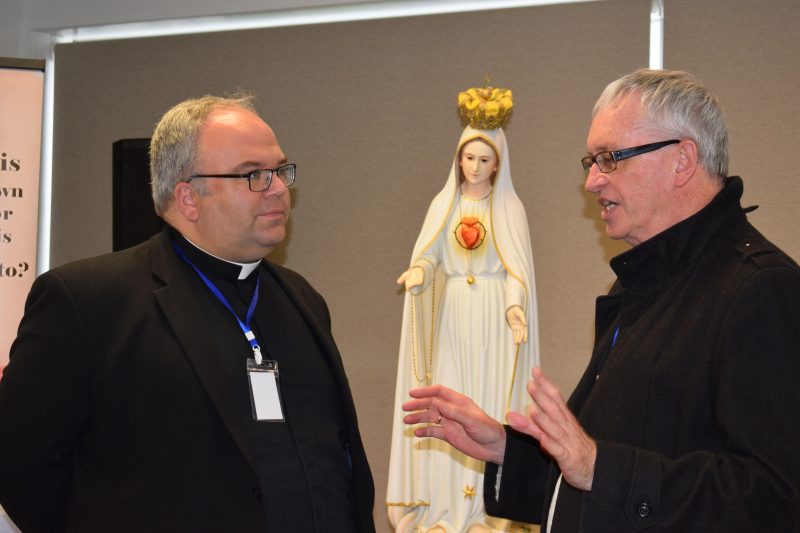Pope Francis is giving us an urgent call to look at the issue of homosexuality more deeply by understanding the person first and foremost.
Courage International associate director Fr Philip Bochanski made this statement at the Voice of the Family Conference hosted by the Family Life International NZ at the Bruce Mason Centre in Takapuna on September 25.
“Whenever Pope Francis talks about this issue, he does it with great fidelity to what the Church has always taught on this issue and what we see in the catechism,” said Fr Bochanski.
He said when ministering to people who are attracted to the same sex, it is best to take the Pope’s advice.
“The best way is what Pope Francis said: starting from their situation. You talk about what it’s like to be him or her. Find out what road they’re on and then show them the road that God has marked out for us,” explained Fr Bochanski.
Offering practical tips, Fr Bochanski said when someone confesses he or she is gay, the first thing to do is to respond with gratitude for the trust they have put in you.
“This is not an easy thing to say even in a culture that seems very accepting,” he said.
The next thing is to listen to the person and learn his (her) hopes and aspirations, whom he (she) loves and who loves him (her).
“The main thing is: I’m interested in who you are and I don’t want to reduce who you are to this one thing. So, let’s talk about your story. Let’s understand how God sees you,” he said.
Fr Bochanski, quoting the Congregation for the Doctrine of the Faith’s 1986 letter on the pastoral care of homosexual persons, said that every person has a “fundamental identity: the creature of God”.
The next question from people experiencing samesex attraction, he said, is usually “does feeling this way make me a bad person? Is there a place for me in the community of the Church?”
Fr Bochanski said it is important to reassure the person that simply experiencing
same-sex attraction is not a sin.
“And then, we have to make good judgement on people’s actions. Homosexual acts are intrinsically disordered,” he said.
Fr Bochanski said the word “disordered” had always been seen as hurtful but it is not a judgement on a person’s mental state or that he is disordered or perverse.
“We are saying that the sexual intimate actions that are part of the same-sex relationship lack those marks of the properly ordered sexuality: unity, complementarity and openness to life,” he said.
“We use that word ‘disorder’ to say that we are off the order, [that] we are going in a different direction.”
Fr Bochanski said God made the world purposely and with a plan. “The pinnacle for this plan for creation is the creation of the human person,” he said.
He said men and women are created as different but complementary to build a family.
“If we consider the plan, then what we realise is that if the Church has to say no, it’s always to help the people to say a bigger yes.
“If the Church has to say this is not the way, it is always because we believe there is a path marked out for us that is meaningful and real,” he said.
And while the Church is not saying that a person should change himself, particularly if the attraction to the same sex is not by choice, the Church expects a change in behaviour, he said.
He said there is a need to be trained in the virtues and to move away from unchaste behaviours.
Chastity, explained Fr Bochanski, is not a repression of desires but a mastery over those desires that will lead to freedom and happiness.
“We have to encourage each other to make God our central relationship that gives context to our lives,” he said.
- On September 27, just after the Auckland conference, Courage International’s board of directors announced that Fr Bochanski, from the archdiocese of Philadelphia, had been named as the new executive director of the apostolate.

Reader Interactions